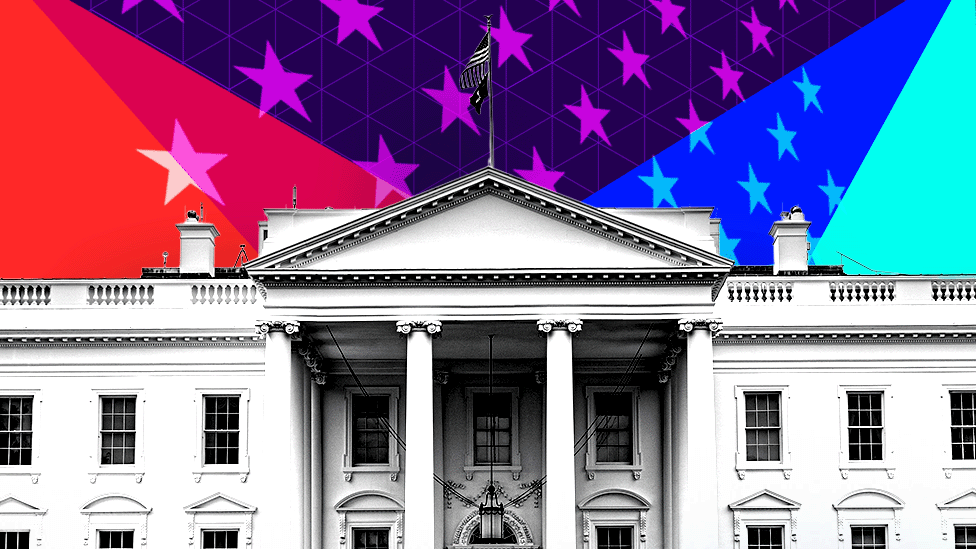Gen Z Voters Unveil Top 3 Power Picks for November
As the November elections approach, the political landscape is buzzing with anticipation and uncertainty. A significant force to reckon with in this election cycle is the Generation Z voters, a group that is poised to make a considerable impact on the results. With their unique perspectives and priorities, understanding where their support lies is crucial for both political analysts and candidates. In this report, we delve into the preferences of Gen Z voters, exploring the top three power picks they are rallying behind for the upcoming November elections.
Generation Z, those born between 1997 and 2012, have come of age in a world markedly different from their predecessors. They are digital natives, having grown up with the internet, social media, and smartphones. This constant connectivity has shaped their worldviews, making them more aware of global issues and more engaged in social justice movements. Their priorities often reflect a desire for progressive change, inclusivity, and sustainability.
Gen Z voters have demonstrated a growing inclination towards progressive policies and candidates who advocate for issues such as climate change, racial justice, economic equality, and healthcare reform. Their activism was prominently displayed during movements like March for Our Lives, Black Lives Matter, and global climate strikes. With a significant portion of this demographic now eligible to vote, their influence on the political stage is undeniable.
A key issue for many Gen Z voters is environmental sustainability. This generation has been at the forefront of climate activism, with figures like Greta Thunberg inspiring millions. The emphasis on addressing climate change is not merely about environmental preservation but also about ensuring a sustainable future.
Candidates who have garnered significant support from Gen Z voters on this issue include those who advocate for the Green New Deal or similar comprehensive climate policies. For instance, Alexandria Ocasio-Cortez, a prominent figure in the Democratic Party, has been a vocal supporter of the Green New Deal. Her efforts to push for aggressive climate action resonate deeply with young voters who view climate change as an existential threat.
Social justice and equality are another cornerstone of Gen Z’s political priorities. This generation is more diverse and inclusive than any before it, and they are passionate about issues such as racial justice, LGBTQ+ rights, and gender equality. The Black Lives Matter movement, which gained significant momentum in 2020, highlighted the urgency of addressing systemic racism and police brutality.
Candidates who support policies aimed at reducing racial disparities, promoting criminal justice reform, and protecting LGBTQ+ rights have found a solid base among Gen Z voters. For example, Senator Bernie Sanders, known for his progressive stances, has long championed these causes. His calls for systemic change and equity align with the values of many young voters seeking transformative solutions to longstanding issues.
Economic opportunity and healthcare are critical issues for Gen Z voters, many of whom are entering the workforce in precarious economic conditions. The COVID-19 pandemic exacerbated existing economic inequalities and highlighted the weaknesses in the U.S. healthcare system. As a result, there is strong support among Gen Z for policies that promote economic fairness and universal healthcare.
Candidates like Senator Elizabeth Warren, who propose substantial reforms to student loan debt, minimum wage increases, and Medicare for All, are particularly appealing to this demographic. Warren’s detailed policy plans and her focus on creating an equitable economic system resonate with young voters who are concerned about their financial futures and access to affordable healthcare.
Social media plays a pivotal role in shaping the political views and actions of Gen Z voters. Platforms like Instagram, TikTok, and Twitter are not just means of social interaction but also tools for political mobilization and information dissemination. Political candidates who effectively leverage these platforms can significantly enhance their reach and influence among young voters.
During the 2020 elections, we saw how social media campaigns and digital organizing could drive voter turnout and engagement. Movements like “TikTok for Biden” and “Instagram for Bernie” showcased the power of social media in rallying young voters and spreading political messages. As we approach the November elections, the role of social media will likely be even more pronounced.
Despite the enthusiasm and engagement of Gen Z voters, there are challenges and criticisms associated with their political involvement. One concern is the potential for misinformation and echo chambers created by social media algorithms. The rapid spread of false information can distort perceptions and influence voting behaviors in detrimental ways.
Additionally, there is the issue of political polarization. Gen Z voters, like many others, can fall into the trap of extreme partisanship, which can hinder constructive dialogue and compromise. Encouraging critical thinking and media literacy is essential to mitigate these issues and ensure that young voters make informed decisions.
The political engagement of Gen Z is not a fleeting phenomenon but a lasting shift that will continue to shape the future of American politics. As this generation matures and gains more voting power, their influence will only grow. Political parties and candidates must adapt to their priorities and values if they wish to secure their support.
Read More:Republicans Launch Impeachment Inquiry Against Joe Biden
Encouragingly, we are seeing an increasing number of young people stepping into political roles themselves. Gen Z candidates are running for office at local, state, and federal levels, bringing fresh perspectives and new ideas to the political arena. Their presence signals a shift towards a more diverse and representative political landscape.
As the November elections draw near, the focus is shifting towards Generation Z, a demographic that is emerging as a significant political force. Born between 1997 and 2012, Gen Z has grown up in an era defined by rapid technological advancement, social media influence, and a heightened awareness of global and social issues. Their voting preferences reflect their unique perspectives and priorities, which are expected to heavily influence the election outcomes. This report delves into the top three power picks for Gen Z voters in the upcoming November elections, highlighting the issues and candidates they support.
Generation Z is characterized by its digital nativity, having never known a world without the internet and smartphones. This constant access to information and connectivity has made them more aware and engaged with social, political, and environmental issues. Unlike previous generations, Gen Z values authenticity, inclusivity, and action-oriented solutions to the problems they see around them. Their political engagement is driven by a desire for substantial change and a belief in the power of collective action.
Environmental sustainability is a paramount concern for Gen Z voters. Having witnessed the tangible effects of climate change, such as more frequent and severe natural disasters, they view environmental issues as immediate and existential. The urgency of the climate crisis is a significant factor in their voting decisions.
Candidates advocating for comprehensive climate policies, such as the Green New Deal, are particularly appealing to Gen Z. This policy aims to address climate change through large-scale government intervention in the economy to reduce carbon emissions, create green jobs, and promote environmental justice. Figures like Alexandria Ocasio-Cortez and Bernie Sanders, who have been vocal supporters of the Green New Deal, resonate strongly with this demographic. Their commitment to aggressive climate action aligns with Gen Z’s demand for a sustainable future.
Social justice is another critical issue for Gen Z. Growing up in a time of increased visibility and activism around issues such as racial inequality, gender rights, and LGBTQ+ rights, they have a strong commitment to promoting equity and inclusion. The Black Lives Matter movement and the fight for LGBTQ+ rights have been particularly influential in shaping their political views.
Candidates who prioritize social justice policies, including criminal justice reform, protection of LGBTQ+ rights, and measures to combat systemic racism, have garnered considerable support from Gen Z. For instance, Kamala Harris, known for her work on criminal justice reform, and Elizabeth Warren, who has been a strong advocate for gender equality and consumer protection, are favored by many young voters. These candidates’ stances on social justice issues align with Gen Z’s vision of a more equitable society.
Economic stability and access to healthcare are also at the forefront of Gen Z’s political agenda. The economic hardships brought on by the COVID-19 pandemic have highlighted the vulnerabilities in the current economic system, making issues like student debt, minimum wage, and healthcare reform even more pressing.
Candidates who propose solutions to economic inequalities, such as free college tuition, student loan forgiveness, and a living wage, attract significant support from Gen Z voters. Bernie Sanders and Elizabeth Warren, who have championed these causes, are seen as champions of economic justice. Their policies aim to reduce financial burdens on young people and ensure a fairer economic playing field.
In terms of healthcare, the support for universal healthcare systems, such as Medicare for All, is strong among Gen Z. The pandemic exposed the shortcomings of the current healthcare system, reinforcing the need for comprehensive healthcare reform. Candidates who advocate for accessible and affordable healthcare are likely to win the favor of this generation.
Gen Z’s digital proficiency is a crucial aspect of their political engagement. They are adept at using social media platforms to mobilize, share information, and advocate for causes they believe in. Platforms like TikTok, Instagram, and Twitter are not just social networks but also tools for political organization and activism.
Political candidates who effectively use social media to communicate their messages and engage with young voters have a significant advantage. The ability to create viral content, respond directly to voters’ concerns, and maintain a transparent and authentic online presence is key to winning Gen Z’s support. During the 2020 elections, social media campaigns were instrumental in driving voter turnout among young people, a trend that is likely to continue.
While Gen Z’s political engagement is a positive development, it also presents challenges. The spread of misinformation and the creation of echo chambers through social media algorithms can distort perceptions and hinder informed decision-making. Additionally, political polarization is a concern, as it can lead to an environment where compromise and constructive dialogue are difficult to achieve.
Despite these challenges, the engagement of Gen Z in politics represents a significant opportunity for positive change. Their advocacy for progressive policies and demand for accountability can drive meaningful reforms. Encouraging critical thinking, media literacy, and civic education will be essential in supporting their continued involvement in the political process.
The influence of Gen Z on the political landscape is set to grow. As more members of this generation become eligible to vote, their collective voice will become even more powerful. Political parties and candidates must pay attention to their priorities and values if they wish to secure their support.
In addition to influencing elections, Gen Z is also beginning to take on leadership roles. Young activists and leaders are running for office, bringing fresh perspectives and new ideas to the political arena. Their involvement signals a shift towards a more inclusive and representative political system.
Generation Z is poised to play a pivotal role in the November elections. Their top three power picks—environmental sustainability, social justice, and economic equality and healthcare—reflect their progressive values and commitment to creating a better future. As digital natives, their use of social media amplifies their impact, making them a formidable force in shaping the political landscape.
Understanding and addressing the concerns of Gen Z voters is crucial for candidates who seek to win their support. By aligning with their priorities and values, candidates can harness the energy and enthusiasm of this generation to drive significant political momentum. The rise of Gen Z in the political sphere is a testament to the evolving nature of democracy, where young voices are increasingly taking center stage and demanding a better, more inclusive future for all.




